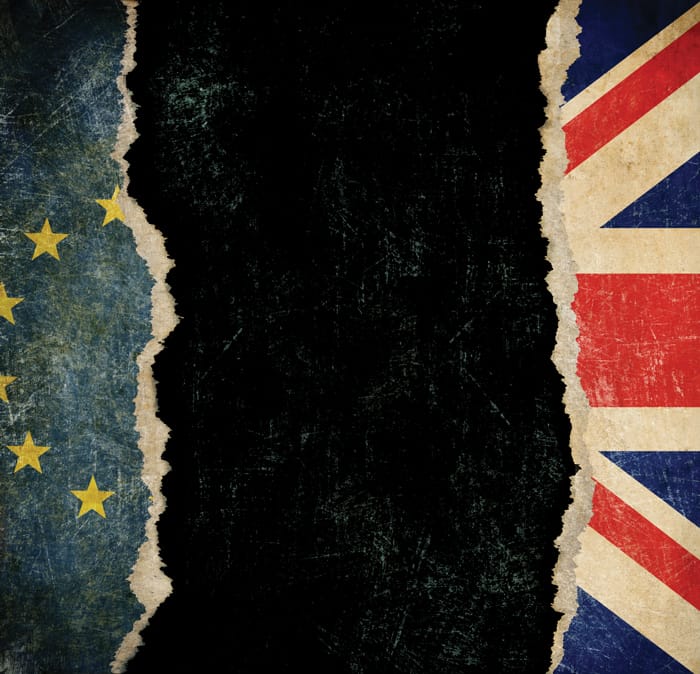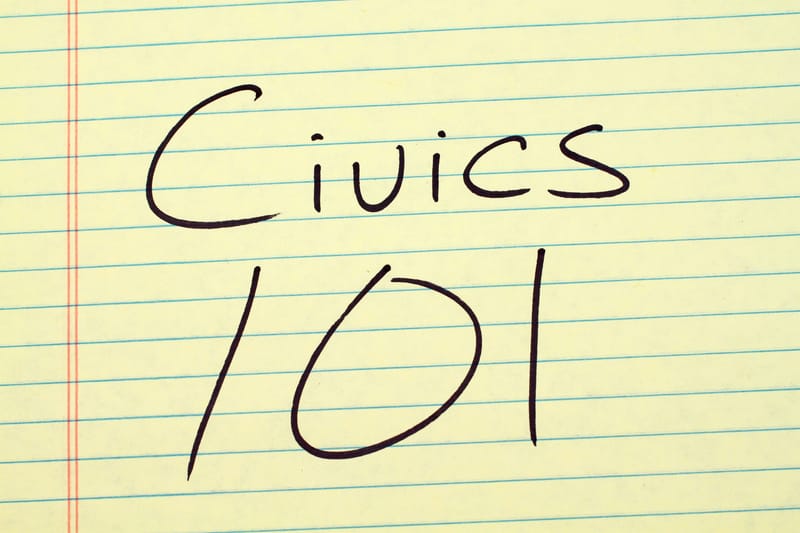

With Britain’s exit from the European Union (EU) inevitably reshaping the global political landscape, Monash University’s Dr Ben Wellings has been interpreting its complex ramifications to assist governments and the wider community.
A leading expert on ‘Brexit’, Dr Wellings began studying ‘Euroscepticism’ and EU politics long before June 2016, when Britons shocked the world – and themselves – by voting narrowly in a referendum to leave the 28-member political and trading bloc.
Dr Wellings calls Brexit “a major moment in European history” and sees it as the catalyst for a new world order. Power centres will shift, postwar alliances will loosen and new groupings will emerge, he forecasts, based on geopolitical interests but also, possibly, shared history, language and culture.
“Perhaps Brexit was the high point of that populist, Eurosceptic resentment – but we can’t say that for sure yet.” Dr Ben Wellings
The bumpy road to Brexit – and beyond
Formal negotiations between Britain and the EU opened on 19 June 2017, and must be concluded by 29 March 2019, the deadline for Britain’s departure.
Before then, agreement needs to be reached on three issues: the rights of EU citizens living in Britain and of Britons in the EU; the status of the Irish border; and Britain’s ongoing contribution to EU finances, given its pre-Brexit pledges.
That last question is the trickiest, according to Dr Wellings, particularly
with Britain’s bargaining position undermined by Conservative Prime Minister Theresa May losing her majority at the June 2017 election.
Britain’s final bill has been estimated at €60 billion to €100 billion: “This will be difficult to manage politically,” Dr Wellings says. “People will think, ‘Why don’t we just cut and go?’ But no deal at all is something negotiators will want to avoid.”
Once Britain formally leaves, there will be a transitional period of up to three years, enabling businesses and individuals to adjust to life outside the EU.
Longer term, Britain hopes to negotiate a free trade agreement with the EU, whose single market absorbs 50 per cent of its exports. One model is the recently signed Canada–EU free trade deal. Britain wants preferential trading terms, particularly for its car industry.
How will Brexit affect the EU?
Brexit is a major blow to the EU, which is losing a member state for the first time in its 60-year history – and at a time when it is already weakened by divisions created by the Eurozone and migration crises.
For the moment, Dr Wellings believes, the threat of other states holding their own exit referendums has receded. France rejected EU-hostile Marine Le Pen at the May 2017 presidential election, and while Hungary and Poland have Eurosceptic governments, there is popular support for EU membership.
“The Brexit vote may have acted as a deterrent in France,” he says. “It certainly seems to have energised the centre and left of politics, when you look not only at France, but also Britain, with the surge of support there for [Labour’s] Jeremy Corbyn.
“Perhaps Brexit was the high point of that populist, Eurosceptic resentment – but we can’t say that for sure yet.”
Dr Wellings predicts a tightening of the EU around a German agenda, with a much more peripheral south lagging behind.
Can the UK remain united?
While 53 per cent of English (and 53 per cent of Welsh) voters opted to leave the EU, the figures were very different in Scotland (38 per cent) and Northern Ireland
(44 per cent).
Intent on seceding within Europe, Scottish nationalists had vowed to press for a second independence referendum (following the first, unsuccessful attempt in 2014) if Brexit succeeded. That prompted fears of a possible break-up of the UK, with Northern Ireland also unhappy about leaving the EU. Earlier this year, the First Ministers of Scotland and Wales threatened to block legislation withdrawing Britain from Europe, on the grounds that it would, they said, undermine their devolved powers.
Although the Scottish National Party suffered heavy losses at the June general election, it remains Scotland’s biggest party, and is hoping for another independence vote post-March 2019. Dr Wellings says: “A small number of Scottish Unionist voters are keeping the [England–Scotland] Union together, so it’s still fragile.”
The Irish border remains a prickly issue, particularly since the Northern Ireland peace process has been facilitated
by cross-border cooperation between Britain and the Irish Republic, both EU members. The EU, meanwhile, is anxious to prevent the border becoming “a back door into the single market for the UK”,
Dr Wellings adds.
The rise of the ‘Anglosphere’ – and Brexit’s repercussions for the US
Arguing the Brexit case before the referendum, some British ministers cast it as an opportunity to replace postwar alliances with a new geopolitics, including Britain at the hub of an alternative bloc of English-speaking nations united by history, culture and values: the ‘Anglosphere’.
Within this grouping, they suggested, the likes of Canada, Australia, New Zealand and the US could exploit their natural affinities to forge new trade and
security agreements.
While the idea is appealing to many conservatives, Dr Wellings – who in June 2017 co-convened the first international conference on the Anglosphere at the British Academy in London – considers that any prospect of it going beyond existing intelligence sharing and defence cooperation is highly unrealistic.
Quite apart from the imperialistic echoes it evokes, some Anglophone countries, such as New Zealand, have been distinctly lukewarm, he points out. Then there is the US, which under the capricious President Donald Trump might be ideologically receptive to the Anglosphere but at the same time is emitting mixed signals on free trade to the global community.
For the US, says Dr Wellings, Brexit means “a fracturing of its Western allies”, potentially weakening the country at a time of global power shifts towards Asia, particularly China.
While he agrees that global politics is undergoing a realignment that will
“create a different kind of world order”, Dr Wellings is unsure what that new order will look like. “At the moment, the cards are up in the air, and we’re waiting to see where they fall.”





